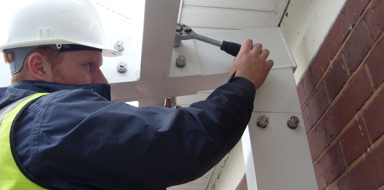At BAE Systems, we’re at the forefront of digital manufacturing developments in support of Industry 4.0. We are creating smart factories of the future, exploiting AI and digital expertise and technologies to drive down costs and improve efficiencies across our manufacturing capabilities. These ambitions are shared by Made Smarter, which is why we have been firm supporters since its inception.
By adopting digital technologies such as automation and data analytics, manufacturers will become more productive, efficient, and agile. These attributes are vital to the recovery from the COVID-19 pandemic, and I believe embracing them and upskilling our people will help the UK compete and be better placed to address the challenges we face now and in the future.
The restrictions that COVID-19 has placed on all businesses have challenged us to make the previously seemingly impossible now possible. So-called ‘traditional’ industries have clearly demonstrated a forward-thinking mindset by embracing the benefits of digital technology.
However, overcoming challenges has been as much about how we think differently as it is about introducing new technologies. Bringing our people on the Industry 4.0 journey and articulating the benefits it can bring is vital if we are to be successful.
During the pandemic, Made Smarter has seen a renewed desire from manufacturers looking to adopt digital tools that can lead to business recovery and growth. It is energising to see that SMEs have a strong appetite for adopting new technology. We have seen that providing technical expertise and funding advice can overcome barriers to progress that previously existed.
Made Smarter offers crucial support to manufacturers looking to adopt digital tools and increase their productivity. The North West adoption pilot is demonstrating what we can achieve as a sector when industry and government work collaboratively towards one vision.
I am proud of what has been achieved by Made Smarter during this challenging period and its ambitions will be central to ensuring a thriving UK manufacturing sector.







